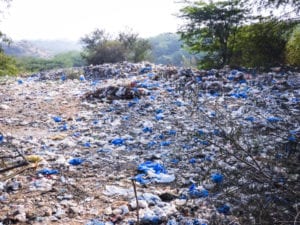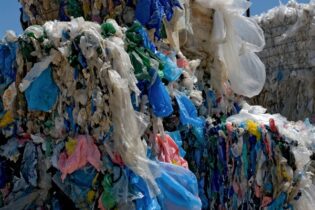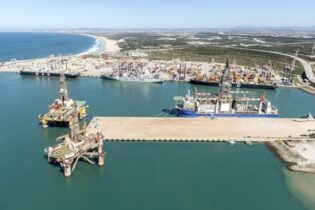According to a report commissioned by the World Wide Fund for Nature (WWF), South Africa is the 11th worst plastic polluter worldwide.
“There is also evidence of an increase in marine plastic debris from land-based sources within SA, suggesting this problem is likely to grow,” says the report, which analysed the extent of the global plastic crisis and profiled several of the worst polluters, including SA. The reposrt, entitled: “Plastics: The cost to society, environment and the economy”, shows sobering pollution data. Stating that the average South African generates 41kg of plastic waste every year, significantly more than the global per capita average of 29kg per year. Most of this escapes the waste management system due to a strain. “In 2018, 35% of households did not receive the weekly waste collection and 29% of household waste was not collected,” the report says. According to Times Live, the pollution avalanche translates into a significant financial burden due to damage to key economic industries such as fishing and tourism. Studies show that many tourists avoid countries with heavily polluted environments.Worldwide the lifetime cost to national governments of plastic produced in 2019 will be at least $3.7 trillion (R52.72 trillion), reaching about $7.1 trillion (R101.16 trillion) by 2040 at the current trajectory, according to the report.
The findings have prompted a call to action from the WWF, which is demanding urgent international collaboration in the form of a binding UN treaty to tackle the crisis. Marco Lambertini, director-general of WWF International, said: “This is the first time we have seen such a clear assessment of some of the unaccounted costs being imposed by plastic pollution on society and they are a burden that is too high to bear — both for people and the environment. “Tragically, the plastic pollution crisis is showing no signs of slowing down. “We need a UN treaty on plastic pollution that unites governments, companies and consumers around clear targets for reduction, collection, recycling and sustainable alternatives to stop plastic leakage into the environment by 2030.” The WWF calls on governments to start the negotiation of a legally binding global treaty on marine plastic pollution at the fifth session of the UN Environment Assembly in February 2022.






